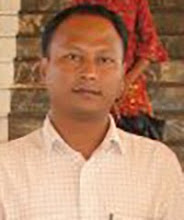Chanmyay Yeiktha, Yangon
Two healthy meals are served everyday, one at dawn, another before noon. Drinks such as orange juice are offered in the evening. Vegetarian food is available on request. In the dining hall every one eats slowly, quietly and mindfully. Clean, safe, hot and cold drinking water is supplied.
The electricity supply is 220V AC. The office has a telephone where international calls can be received or made and paid for. No reverse charge is available for in or out-going calls. There is a fax machine, for emergency use only. Prepaid aerogramme are not available or bring your own writing paper and envelops.
There is a medical clinic with doctors coming on a regular basis. "Western" and traditional medicines are available. There is no malaria in Yangon or central Myanmar, but take precautions in the remote and border areas. for immunizations please consult your doctor.
Yangon has a tropical climate. The rainy season is usually from about June to October. The cool dry season is form November to February, it can be quite pleasant and good for meditation. Form Much to June are the hot, dry months.
Light, easily washable and quick drying cloths are useful. The Myanmar longyi is practical and most yogis wear light, long sleeve cotton shirts.
Please write, phone, fax or e-mail details of your arrival flight one week before arriving so you can be met at the airport. Transport is readily available. Mail can take up to ten days to reach us.
It is preferred that foreigners practise at least one months. Please bring extra passport photos for the various forms. For less than for weeks, a tourist visa is adequate. However, for long periods, you must obtain a meditation visa before coming to Myanmar. This requires a sponsorship letter from the abbot Chanmyay Sayadaw (Sayadaw Ashin Janakabhivamsa).
For long term meditation, Lay meditators must observe the eight precepts. Talking is kept to an absolute minimum, as is reading and writing. We teach insight (Vipassana) meditation according to the Satipatthana Sutta and the Mahasi tradition.
Meditators are expected to practise intensively, performing all activities slowly, to allow continuity of mindfulness and strong concentration.
Men and women have separate large meditation halls for sitting and walking meditation. These have a conducive atmosphere for meditation practice.
There is a general daily timetable but the teacher gives specific meditation instruction to the meditators based on their individual experience and ability.
Meditation instructions and interviews are given in English on alternate days. Sometimes an interpreter is used if an English speaking teacher is not available.








|